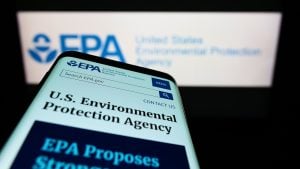For years, mesothelioma victims, healthcare professionals, and advocates in the United States have fought for a ban on the use and import of asbestos. This week the Environmental Protection Agency proposed a prohibition on the use, manufacture and import of chrysotile asbestos, but many say the move still does not go far enough.

Chrysotile Asbestos Linked to Mesothelioma and Other Asbestos-Related Diseases
Chrysotile is a type of asbestos that has been directly linked to the development of malignant mesothelioma, a rare and deadly form of cancer. Though many Americans are under the mistaken belief that it was banned decades ago, efforts to ban it were stymied by intense lobbying by the chemical industry, and it continues to be used in roofing materials, automotive parts, cement, and in the processing of chlorine.
While mesothelioma advocates acknowledge that the Environmental Protection Agency’s proposal would stop the import, processing, and distribution of chrysotile, they point to the fact that other types of asbestos could still be imported as long as the EPA is notified and provides approval. More importantly, they expressed concern about the threat of exposure posed by asbestos that remains in place from previous applications.
Legacy Asbestos Poses Continued Threat of Mesothelioma and Other Asbestos-Related Diseases
The EPA officials are pointing to the decision as a big win in the prevention of mesothelioma and other asbestos-related diseases, while those who have lobbied for the ban say that it still does not go far enough. According to EPA administrator Michael S. Regan, “This historic proposed ban would protect the American people from exposure to chrysotile asbestos, a known carcinogen.”
But Linda Reinstein, president and founder of Asbestos Disease Awareness Organization pointed to the risks that continue to be posed by legacy asbestos that remains in buildings, equipment, and infrastructure, as well as from the five types of asbestos that can still be imported, saying, “Without a ban of all fiber types, asbestos can still be imported in consumer products, kids’ toys and building materials.” For his part, Dr. Raja M. Flores, who treats approximately 60 mesothelioma patients each year at the Icahn School of Medicine at Mount Sinai in New York, calls the ban “a step in the right direction.”
Fighting on behalf of mesothelioma patients takes many forms. To learn more about how the Patient Advocates at Mesothelioma.net can help you, contact us today at 1-800-692-8608.
